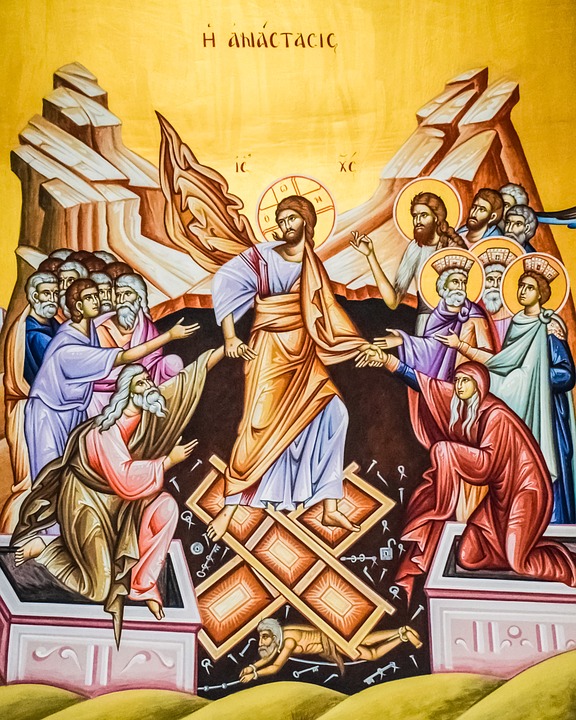On the evening of that day, the first day of the week, the doors being shut where the disciples were, for fear of the Jews, Jesus came and stood among them and said to them, “Peace be with you.” When He had said this, He showed them His hands and His side. Then the disciples were glad when they saw the Lord. Jesus said to them again, “Peace be with you. As the Father has sent me, even so I send you.” And when He had said this, He breathed on them, and said to them, “Receive the Holy Spirit. If you forgive the sins of any, they are forgiven; if you retain the sins of any, they are retained.”
John 20: 19-23
(From the Ninth Eothinon Gospel)
Christ is Risen!
All of the sacraments in the Orthodox Church have their foundation in Scripture. No, the Scriptures don’t give a complete set of instructions on how to do each sacrament. Over centuries, the sacraments have evolved and have been “codified” into Traditions that are practiced the world over. For instance, nowhere in the Bible does it describe the Divine Liturgy. However, the sacrament of Holy Communion was instituted by the Lord at the Last Supper, before His Passion. And over the first four centuries, the Divine Liturgy developed into the service that we are still doing in order to participate in the Eucharist.
After the Crucifixion, the Disciples hid behind closed doors for fear that they would be arrested and crucified as well. Jesus came and stood in the midst of them. The disciples were glad when they saw the Lord. According to John’s account, the Disciples were not confused, or scared, but rather were joyful to see the Lord again. Jesus said to them “Peace be with you.” And then continued, “As the Father has sent me, even so I send you.” And then He “breathed” on them and said to them “Receive the Holy Spirit.” This is the first “ordination.” Jesus commissioned the Disciples to go out, and He imparted the Holy Spirit to them. This verse is the foundation of the sacrament of Ordination. In the modern sacrament of Ordination, the person being ordained kneels before the Holy Altar table and the ordaining Bishop asks for the Holy Spirit to come down on that person to ordain them as a deacon, priest or bishop. And then they are “sent out” as Jesus sent out the Disciples, to spread the Gospel to all nations.
In the next verse, Jesus says to the Disciples, “If you forgive the sins of any, they are forgiven; if you retain the sins of any, they are retained.” In this verse, we see the foundation of the sacrament of confession. For in confession, the priest has the responsibility of loosening or retaining sins. Confession provides a way for the faithful to be loosed of their sins and their guilt. It is the responsibility of the “confessor” to discern whether the sin should be loosed or retained. And this is a pretty heavy responsibility.
The lesson of today’s reflection is not specifically on confession or ordination. Many reflections could be written on each of them. The lesson today is that we do not separate Tradition from Scripture. Rather Tradition is rooted in Scripture. And Scripture is “fleshed out” through Tradition. And the beginning of the ninth Eothinon Gospel provides the foundation for two of our sacraments—confession and ordination.
As in later times, late in the evening of the Sabbath You came and stood by Your friends, O Christ. By a miracle, You entered through closed doors and confirmed Your Resurrection from the dead. You filled Your disciples with joy, and imparted to them the Holy Spirit and granted them power to remit sins. Nor did You leave Thomas immersed in a tempest of disbelief. Therefore, compassionate Lord, grand us also true knowledge and remission of our faults. (Ninth Eothinon Doxastikon, Trans. by Holy Cross Seminary Press, 1991).
Don’t forget to read the Scriptures on a regular basis. Because we don’t only know Christ through worship and Tradition. We come to know Him through the words of Scripture, the Holy Gospels.



